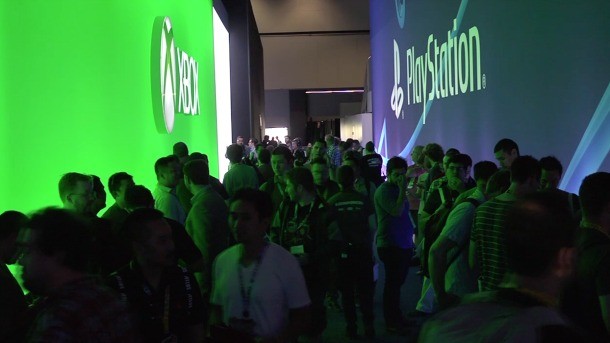Opinion – It's Time To Leave The Console War Mentality In The Past

In the '90s, Sega launched an all-out assault on video game industry frontrunner Nintendo in a now-iconic advertising campaign. The flagship television ad directly called out Sega's direct competition with the slogan "Genesis Does What Nintendon't." In addition to boosting the awareness of Sega's underdog hardware, this approach effectively launched the console wars of the 1990s. The aggressive ads stood in stark contrast to Nintendo's safe, sterile approach and drew attention to the less-known company.
In the time since then, most companies have generally evolved in the ways they interact with competitors, often taking more diplomatic and congratulatory approaches. However, when companies do publicly bash their competitors – such as during Sony's E3 2013 press conference when the company capitalized on the backlash of Microsoft's Xbox One DRM policies – it stokes the fire for tribalistic fan communities that are just waiting for an excuse to attack the other side of the fence.
We see it all the time: someone makes a comment on social media or a website about one particular system or company, and the mudslinging begins. Sometimes it's a slow burn to devolving into derogatory slurs and angry messages, but we see it all too often. These aren't just followers who pop into timelines and argue with someone they disagree with; they are sometimes sentinels who seemingly come out of nowhere to actively seek out fights.
From my perspective, I see it each time we post an article discussing the position of the platform holders. Report that the NPD says that Microsoft outsold Sony for a particular month (or vice versa) and we're accused of being biased. Criticize a component of a console and the defense force makes a strong showing. Even calling out a platform holder for an unfriendly policy that, if changed, would benefit the most hardcore gamers can lead to angry comments, emails, and even threats of violence.
For instance, I posted an article arguing Microsoft's
digital game policy on Xbox One is unacceptable because some users were unable
to access content due to Microsoft's server problems. If Microsoft changed that
policy, it would ultimately benefit the most die-hard fans of the system. Instead,
I was bombarded by everything from people trying to explain why I was wrong (in
actuality, they were just experiencing a different problem than what I was) to
even one disgruntled reader who sent multiple emails detailing where, when, and
how he was going to kill me.
The undying loyalty is the most perplexing part of it. It's great to love the work of a company and support that brand, but at the end of the day, some fans go to bat for these companies as if they were personal friends. Taking it to the point where you're throwing names or threats toward someone with a different opinion is absurd.
In the age of social media, people often fail to treat others online with respect. It's much easier to attack when it's not a face-to-face interaction. Much like when you get angry while driving, it doesn't feel like you're yelling at another human being because you're so disconnected from that person. Similar to this, it's easy to dehumanize those you disagree with online because it can feel like you're yelling at an avatar. If those carrying on the arguments of the console wars would simply pause to realize they're talking with actual human beings, maybe our online interactions would change for the better.
If you think one console is the best, that's fine. However, we need to move beyond the hostile, argumentative stance and realize that the reason we're all interacting with each other in the first place is a shared love of gaming. Video games are a superb form of escapism. Being able to turn on a game and forget any problems we face in the real world exist for a short period is invaluable. Unfortunately, when competition-driven animosity centered on preferred brands permeates discussion within the community, much of the medium's peripheral escapist qualities are lost.
Even the original console war between Nintendo and Sega was won and lost on the merits of the games and hardware themselves, not the marketing or animosity attached to it. Since then most companies and fans have come to the conclusion that a rising tide lifts all boats; the stronger the industry is, the better it is for everyone in the industry.
What it should all boil down to is this: like what you like, and let others like what they like. If you think one system is superior to the others, feel free to voice that opinion respectfully. Just don't think that a Fortune 500 company is somehow your friend that you need to defend to your grave. Nothing is ever completely good or completely bad. Embrace nuance and understand that competition and criticism – even when you disagree with it – can ultimately be a good thing that drives developers, publishers, and platform holders to better results.

Get the Game Informer Print Edition!
Explore your favorite games in premium print format, delivered to your door.
- 10 issues per year
- Only $4.80 per issue
- Full digital magazine archive access
- Since 1991









